Answers to Your Questions
Our Program Features.
Our program began in a home, and we have continued to maintain that environment and culture at both locations. Unlike a hospital setting, our environment helps nurture the healing process.
Your treatment at Tara will be delivered by a team of professionals representing many disciplines including nurses, physicians, psychologists and addiction counselors. This multi-disciplinary team allows Tara to meet your specific needs while recovering and moving forward.
Our treatment program is holistic in nature - focusing on various approaches to help individuals learn the concepts of recovery while healing physically, emotionally, mentally and spiritually.
Our Relapse Prevention Therapy (RPT) is modeled after Terence Gorski, an internationally recognized expert on substance abuse treatment and best known for his contribution to relapse prevention. It is designed to aid you in recognizing and managing your core personality and lifestyle. This mindfulness and self-awareness increase your understanding of the impact of your addiction and can lead you to create a life without the pain of the addiction.
Using various strategies, counselors educate you on the basic and advanced concepts of addiction and recovery, anger management, relationship dynamics, coping strategies, vocational skills, as well as many other important facets vital to the success of their recovery.
We have s a rich history of treating individuals and their families. Our program is designed to address the challenges of family dynamics. We provide opportunities for you to connect with your loved ones and begin to heal relationships.
Family members will be permitted to visit with you bi-weekly. We encourage everyone who has been impacted by addiction and is seeking support, to improve relationships among the family unit.
Our highly qualified therapists help you emotionally process many of the feelings involved in early recovery. We use many different approaches for treatment. Specifically, Tara provides the following three well-regarded and proven therapies:
Cognitive Behavioral Therapy
This is directed toward problem-solving and teaching skills that are needed to modify thinking and behavior.
Motivational Interviewing
Motivational interviewing is a behavioral and cognitive psychotherapy method that focuses on helping people find their own motivation for changing undesirable behaviors.
Gestalt Therapy
This therapeutic approach focuses on the here and now. It helps you understand what is happening in the present rather than what you perceive to be happening based on experience. It leads you to view your life through a clearer lens.
We recognize that treatment and recovery is a dynamic learning process. We utilize many team-building and recovery concepts. These groups help you express feelings that may not come easily in formal “talk therapy.” These group exercises are taught by trained team-building facilitators. Here are some examples of these activities:
Yoga and 12 Step Recovery (Y12SR)
The combination of yoga with addiction counseling services creates a model that truly addresses addiction as the physical, mental and spiritual disease that it is.
Art Therapy
Utilizing art as a means of self-expression, you tap into your creative mind and in doing so, learn to enjoy things again. Enjoyment and hobbies are valued skills in recovery.
About Your Stay.
The average length of stay is four to six weeks. However, we do offer programs that extend beyond that if needed.
To make your stay at Tara more comfortable, you should bring the following items in a single suitcase:
- Appropriate casual clothing
- Shower shoes (flip flops)
- Closed-toe shoes (for recreation)
- Cash (recommended not to exceed $50) for incidentals
- 12-step literature (literature can also be obtained at the facility)
- Photo identification
- Insurance card
- Paper, stamps and envelopes
- Toiletries (soap, lotion, solid deodorant, tooth paste and alcohol free mouth wash, etc.)
- Laundry detergent (supplies are also available for purchase)
- All current medications with refills and/or written prescriptions
- Sodas and snacks (one bag)
- Notebook and pen
- Knitting, crocheting, coloring books, crossword puzzles, crayons, colored pencils, and washable markers.
- Recreational reading material will be permitted unless the material could promote emotional harm or well-being. Up to 2 books per person are permitted.
- Musical instruments will be permitted at our discretion. (No keyboards, drums, and/or any other larger musical instrument will be permitted.)
- No drugs, alcohol, or mood altering substances of any kind, including paraphernalia. No guns or weapons, including knives, of any kind. If any and these items are brought onto the premises, they will be confiscated and destroyed immediately.
- Loose tobacco, rolling papers, or cigars of any kind
- Electronic cigarettes
- Cell phones
- Valuable jewelry
- Electronic watches (i.e. Apple Watch, Fitbit, etc.)
- Revealing clothing, clothing with alcohol, drug or sexually suggestive messages, no band/artist t-shirts
- Radio, iPod, camera, recreational reading material, laptop
- Nail polish or polish remover
- Aerosol products of any kind, including aerosol hairspray and aerosol shaving cream
- Liquid hairspray containing alcohol
- Colognes, perfumes or any products containing alcohol
- Please don't bring shampoo, conditioner, or body wash; these are provided
- Essential oils
- Blankets, pillows, or other types of bedding
- Towels and wash cloths
- No paint, glue, permanent markers, or any items that could potentially damage property, clothing, or furniture will be permitted
Yes. Mail is distributed Monday through Friday. You will be required to open all packages in the presence of a staff member and they will be searched for contraband. Your family may send mail to your attention at:
Tara Treatment Center 6231 South U.S. 31, Franklin, Indiana 46131
Yes, but phone calls are limited and based upon a tier system. Individuals gain increased phone privileges as they progress through treatment.
Use of the television and radio are permitted at designated times.
Cell phones are not permitted while in the Residential Program.
You may bring any literature pertaining to the 12-steps. You may also bring a Bible if you choose. No other reading material is permitted unless authorized by your counselor.
We do not sell cigarettes at Tara, but family members or other visitors can bring them to you.
Smoking (cigarettes only) is permitted in designated areas only.
We recommend having no more than $50 for incidental purchases.
We offer you the opportunity to make phone calls and write and receive personal mail. In-person family visitation is held on Wednesdays from 2 to 4 p.m. In order to accommodate visitation for both the men and women's program, we alternate weeks so that clients can meet with their families every other week. Children may be included in the visits. During this time, a one-hour informative and required education session is offered for family members followed by one hour of visitation. A complete guideline for family visitation will be provided upon admission to the program.
Our Core Values.
Honesty is crucial from the day a person enters treatment and throughout their life in recovery. It's so foundational to recovery that it's the basis for the first step of any 12-step recovery program. Dishonesty at any stage of recovery can pose an immense risk to a person's sobriety, which is why it must always be carefully guarded against.
Overcoming the habits and thought patterns of addiction is challenging. The most effective way to beat addiction is also the simplest and most straightforward: by putting in the work. Just as we expect our clients to work hard on their recovery, our staff members hold themselves to the same high standard. Our team always strives to work just as hard as the individuals they serve because they know that the effort they put into their clients' treatment directly impacts their chances at being successful in recovery.
Trust is an absolutely essential component of treatment and recovery. We believe that it is impossible to recover from addiction unless we have trust with each other and in the process.
Commitment is the desire to achieve a goal plus a personal pledge to do so. Any person who hopes to succeed in sobriety must be willing to go "all in" and dedicate themselves to the path that lies ahead. We believe the same level of commitment is also required from addiction treatment professionals, which is why we strive to cultivate this value among our staff and clients alike.
Make Today the Day.
Are you ready to make today the day to get healthy? Are you committed to regain control of your life?
We begin with a free assessment of you and your addiction, using the American Society of Addiction Medicine criteria. We will identify your needs and determine your appropriate level of care.
GET HELP
